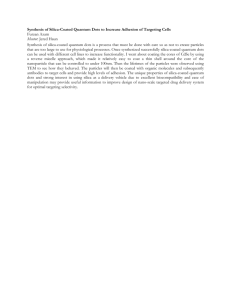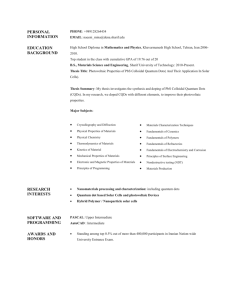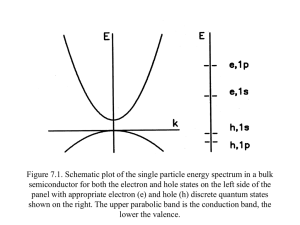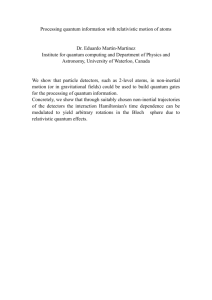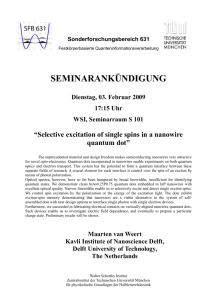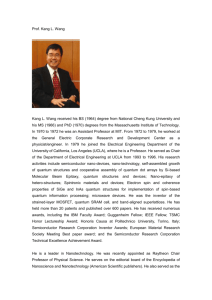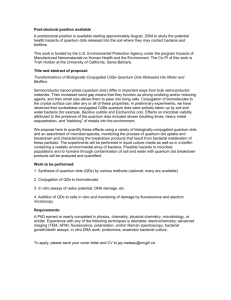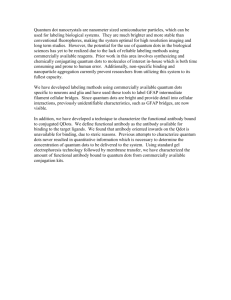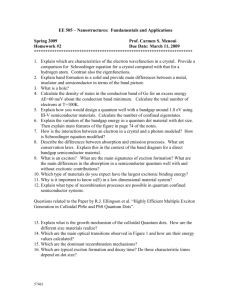Colloidal Semiconductor Quantum-Dot based Light
advertisement
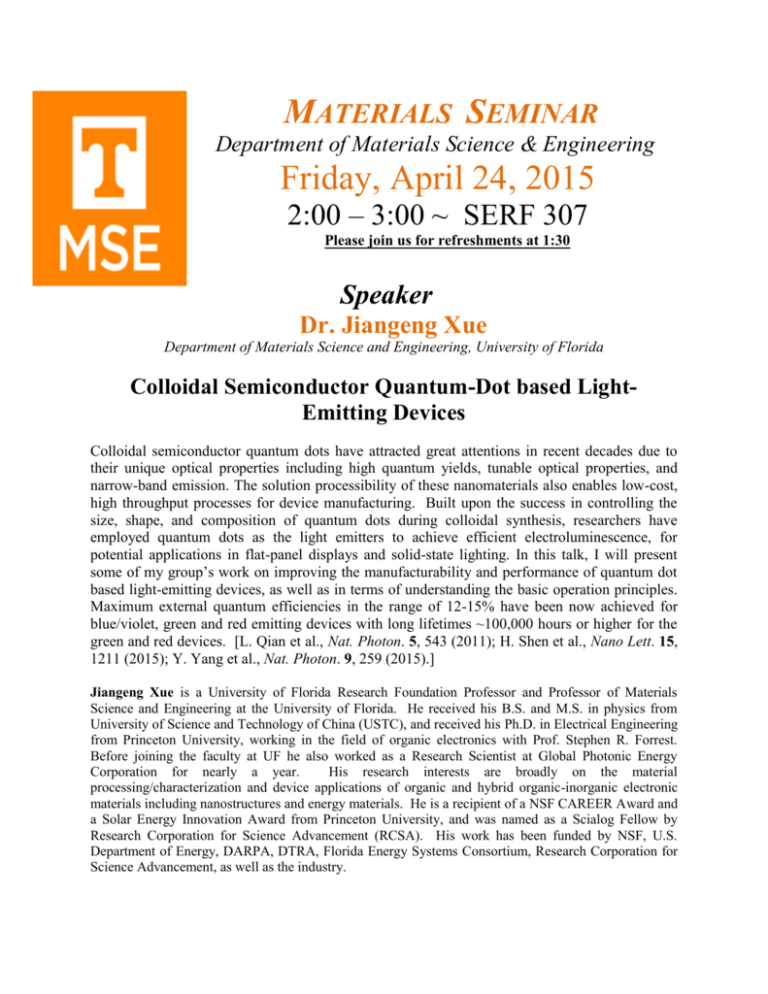
MATERIALS SEMINAR Department of Materials Science & Engineering Friday, April 24, 2015 2:00 – 3:00 ~ SERF 307 Please join us for refreshments at 1:30 Speaker Dr. Jiangeng Xue Department of Materials Science and Engineering, University of Florida Colloidal Semiconductor Quantum-Dot based LightEmitting Devices Colloidal semiconductor quantum dots have attracted great attentions in recent decades due to their unique optical properties including high quantum yields, tunable optical properties, and narrow-band emission. The solution processibility of these nanomaterials also enables low-cost, high throughput processes for device manufacturing. Built upon the success in controlling the size, shape, and composition of quantum dots during colloidal synthesis, researchers have employed quantum dots as the light emitters to achieve efficient electroluminescence, for potential applications in flat-panel displays and solid-state lighting. In this talk, I will present some of my group’s work on improving the manufacturability and performance of quantum dot based light-emitting devices, as well as in terms of understanding the basic operation principles. Maximum external quantum efficiencies in the range of 12-15% have been now achieved for blue/violet, green and red emitting devices with long lifetimes ~100,000 hours or higher for the green and red devices. [L. Qian et al., Nat. Photon. 5, 543 (2011); H. Shen et al., Nano Lett. 15, 1211 (2015); Y. Yang et al., Nat. Photon. 9, 259 (2015).] Jiangeng Xue is a University of Florida Research Foundation Professor and Professor of Materials Science and Engineering at the University of Florida. He received his B.S. and M.S. in physics from University of Science and Technology of China (USTC), and received his Ph.D. in Electrical Engineering from Princeton University, working in the field of organic electronics with Prof. Stephen R. Forrest. Before joining the faculty at UF he also worked as a Research Scientist at Global Photonic Energy Corporation for nearly a year. His research interests are broadly on the material processing/characterization and device applications of organic and hybrid organic-inorganic electronic materials including nanostructures and energy materials. He is a recipient of a NSF CAREER Award and a Solar Energy Innovation Award from Princeton University, and was named as a Scialog Fellow by Research Corporation for Science Advancement (RCSA). His work has been funded by NSF, U.S. Department of Energy, DARPA, DTRA, Florida Energy Systems Consortium, Research Corporation for Science Advancement, as well as the industry. Contact: Dr. Bin Hu – bhu@utk.edu
